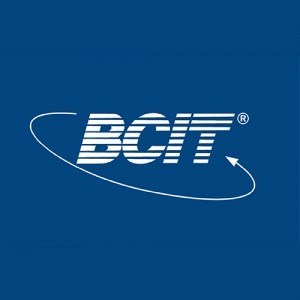Photos of university / #lifeatbcit
The Specialty Nursing program with a focus on Critical Care and Emergency services at the British Columbia Institute of Technology (BCIT) is designed to prepare registered nurses to excel in high-acuity, fast-paced healthcare environments. This combined program provides comprehensive training and education in acute and emergency patient care, equipping graduates with the skills and knowledge necessary to respond effectively to critical health situations. Throughout the program, students engage in rigorous coursework that covers advanced patient assessment, life support techniques, advanced pharmacology, and vital signs interpretation, alongside practical clinical experiences in hospital settings. The curriculum emphasizes both theoretical understanding and hands-on practice, fostering the development of critical thinking, decision-making, and leadership skills essential for managing complex patient cases. Students have opportunities to simulate real-world emergencies through state-of-the-art simulation labs, ensuring they are well-prepared for real-life scenarios such as trauma, cardiac emergencies, and respiratory crises. The program also focuses on interprofessional collaboration, communication skills, and ethical practice in emergency and intensive care contexts. Graduates of this program are prepared to work in various critical care environments, including intensive care units (ICUs), emergency departments, and specialized critical care transport teams. The program’s intensive coursework, combined with clinical placements, ensures students gain valuable practical experience and confidence to operate effectively in demanding healthcare settings. Upon completion, graduates earn a recognized credential that qualifies them to provide expert nursing care for critically ill patients, advancing their careers in specialized nursing fields and contributing positively to patient outcomes and healthcare delivery. The BCIT Critical Care — Combined Critical Care and Emergency Option program maintains a strong emphasis on professional development, lifelong learning, and adherence to the highest standards of nursing practice, making it an excellent choice for registered nurses seeking to specialize further in emergency and critical care nursing.
The Bachelor of Science in Nursing program with a specialization in Critical Care — Combined Critical Care and Emergency Option at the British Columbia Institute of Technology is designed to prepare students for advanced roles in acute and critical care nursing. This comprehensive program integrates theoretical knowledge with practical skills, ensuring graduates are well-equipped to meet the complex needs of critically ill patients in diverse healthcare settings. The curriculum covers core nursing principles, advanced patient assessment, pharmacology, and evidence-based practice, with a specific emphasis on the management of critically ill adults and emergency situations. Students will engage in rigorous clinical practicums, working closely with seasoned healthcare professionals in hospitals and community environments to develop hands-on experience in critical care units, emergency departments, and trauma centers.
Throughout the program, learners will explore topics such as advanced cardiovascular and respiratory care, trauma management, life support techniques including advanced cardiac and trauma resuscitation, and the use of cutting-edge medical technologies. The program also emphasizes leadership, ethical decision-making, and interprofessional collaboration, preparing students to function effectively within multidisciplinary healthcare teams. Graduates will be capable of delivering high-quality, patient-centered care, responding swiftly and effectively to emergency situations, and making critical decisions under pressure. With a focus on innovation and continuous improvement, the program aims to foster skilled practitioners who can contribute to improving patient outcomes in critical and emergency care settings. Upon completion, graduates are prepared to pursue careers as critical care registered nurses, emergency nurses, or to continue their education in graduate-level nursing or specialized advanced practice roles.
Program requirements for the Specialty Nursing (Critical Care — Combined Critical Care and Emergency Option) at the British Columbia Institute of Technology include a combination of prerequisite coursework, practical experience, and technical skills development. Applicants are generally required to hold a valid license as a Registered Nurse (RN) in British Columbia or elsewhere, with relevant clinical experience in acute or emergency healthcare settings preferred. The program emphasizes foundational nursing knowledge, critical thinking, and specialized skills pertinent to both critical care and emergency nursing practice. Candidates must complete prerequisite courses in anatomy, physiology, microbiology, and nursing fundamentals prior to admission. Advanced standing may be granted for relevant clinical experience or prior coursework, although this is evaluated on a case-by-case basis.
Once admitted, students are expected to participate in a series of coursework modules covering advanced patient assessment, pharmacology specific to critical and emergency care, airway management, trauma nursing, and stabilization techniques for critically ill patients. The curriculum integrates classroom learning with extensive practical components in simulation labs and supervised clinical placements. These placements are typically conducted in hospital intensive care units, emergency departments, and specialized critical care units, providing real-world experience under the supervision of licensed practitioners.
Students must demonstrated competency in skills such as patient monitoring, ventilator management, infusion therapy, and emergency interventions, consistent with industry standards and provincial regulations. Additionally, program requirements include completion of safety and quality assurance training, certification in Basic Cardiac Life Support (BCLS), and advanced cardiac life support (ACLS). Ethical practice and adherence to professional standards are integral components of the program, with assessments focusing on competency-based evaluations, clinical performance, and problem-solving abilities.
Language proficiency in English is mandated, with standardized test scores accepted for non-native speakers. Continuous professional development and peer collaboration are encouraged throughout the program. To maintain enrollment, students must adhere to the college’s academic and conduct policies, participate actively in all clinical rotations, and pass all required assessments. Upon successful completion of the program, graduates are awarded a diploma or degree in nursing with specialization in critical care and emergency care options, qualifying them for registration as critical care and emergency nurses, and enhancing their employment prospects in acute healthcare settings.
The Financing of the Specialty Nursing (Critical Care — Combined Critical Care and Emergency Option) program at the British Columbia Institute of Technology is designed to make higher education accessible to a diverse student population through various funding options. Students enrolled in this program can explore a range of financial aid opportunities, including government grants, scholarships, bursaries, and student loans. The British Columbia government offers financial assistance programs such as the Canada-B.C. Student Grant and the Canada Student Loans Program, which help eligible students cover tuition fees and living expenses. Additionally, BCIT provides specific scholarships and bursaries targeted at nursing students, recognizing their contribution to healthcare and encouraging excellence in the field.
Students are encouraged to apply for federal and provincial financial aid programs early to ensure timely processing and disbursement. The institution also offers payment plans and flexible financing options to accommodate students’ financial situations. Many students utilize external scholarship opportunities offered by health organizations, community foundations, and private donors, which are advertised on BCIT’s financial aid portal. Also, part-time employment opportunities within or outside the campus may be available to students, providing additional income to support their studies. International students, if applicable, should consult specific international student funding programs and scholarship opportunities to assist with tuition and living costs.
Financial planning is an essential part of enrollment, and prospective students are advised to use the BCIT Financial Aid and Awards Office services to develop a comprehensive budget. The university emphasizes transparency in tuition fees, which are published annually and include detailed cost breakdowns. Students can also consider student lines of credit from financial institutions, which often have special rates and terms for students in health-related programs. Overall, BCIT’s commitment to supporting students financially aims to reduce barriers to education, ensure timely graduation, and prepare highly qualified nurses ready to meet the demands of critical care environments.
The Specialty Nursing program in Critical Care — Combined Critical Care and Emergency Option at the British Columbia Institute of Technology (BCIT) is designed to provide registered nurses with advanced skills and knowledge necessary to work in high-acuity environments. The program emphasizes comprehensive training in critical care nursing, focusing on both the clinical expertise required in intensive care units (ICUs) and emergency settings. Students are prepared to handle complex medical conditions, perform advanced procedures, and respond rapidly and effectively to emergencies. The curriculum typically includes coursework in advanced patient assessment, pharmacology, invasive monitoring, ventilator management, trauma care, emergency procedures, and ethical considerations in critical care. Practical experience is a central component, with clinical placements integrated throughout the program to ensure students can apply theoretical knowledge in real-world settings. These placements often occur in hospitals and specialized health care facilities within British Columbia, providing exposure to diverse patient populations and clinical scenarios. The program also emphasizes interprofessional collaboration, communication skills, and leadership, preparing graduates to work seamlessly within multidisciplinary teams in demanding environments. Graduates of this program are equipped to pursue employment in critical care units, emergency departments, or related settings, and may also be eligible for further specialization or advanced practice roles. Admission requirements typically include current registration as a registered nurse with the British Columbia College of Nurses and Midwives (BCCNM) and relevant clinical experience. The program duration generally spans several months to a year, depending on course schedules and clinical commitments. Successful completion of this specialty program qualifies graduates to provide expert care in high-stakes situations, contribute to patient advocacy, and participate in continuous quality improvement efforts within critical care settings.

